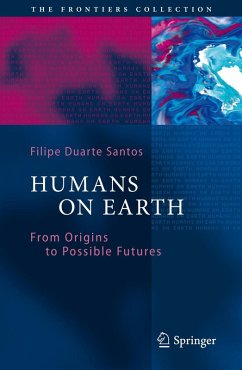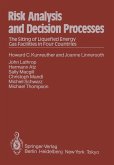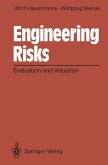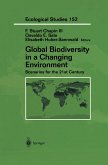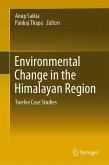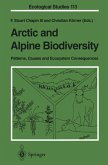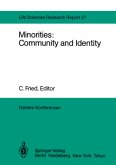This is a wide-ranging and persuasive book written by an undisputed expert. Beginning with a broad history of the Universe, Earth, Life, and Man, it considers the origins and rise of science and technology, before moving on to discuss the present state of the world and its/our possible futures. Humans on Earth then addresses the main challenges for social and economic development in the 21st century in the context of global change. It presents a detailed but non-technical analysis of questions relating to climate change, our dependence on fossil fuels, deforestation, loss of biodiversity, desertification, and air, water, soil, and ocean pollution, as well as problems related to overpopulation, poverty, social and economic inequalities, and conflict potential. The three main, but largely mutually exclusive, discourses on human development and the environment are described and discussed. The main emphasis is on the risks and uncertainties of the short-term future - the next 50 to 100 years - with regard to environmental degradation and the sustainability of our growth paradigm.
"... a sweeping, thoughtful view of the role of humans in shaping our modern world."
Paul Epstein, Center for Health and the Global Environment, Harvard Medical School
"... a sweeping, thoughtful view of the role of humans in shaping our modern world."
Paul Epstein, Center for Health and the Global Environment, Harvard Medical School
"Professor Filipe Duarte Santos, a physicist and scholar of environmental sciences at the University of Lisbon, provides a sweeping, thoughtful view of the role of humans in shaping our modern world. Beginning with a short history of the universe, he crafts an easily accessible narrative, weaving together an exploration of the laws of physics, an examination of human evolution, and an illuminating discussion of the roles played by art, religion, science, and technology."
From the Foreword by Paul Epstein, Center for Health and the Global Environment, Harvard Medical School
From the Foreword by Paul Epstein, Center for Health and the Global Environment, Harvard Medical School
From the reviews:
"Professor Filipe Duarte Santos, a physicist and scholar of environmental sciences at the University of Lisbon, provides a sweeping, thoughtful view of the role of humans in shaping our modern world. Beginning with a short history of the universe, he crafts an easily accessible narrative, weaving together an exploration of the laws of physics, an examination of human evolution, and an illuminating discussion of the roles played by art, religion, science, and technology."
From the Foreword by Paul Epstein, Center for Health and the Global Environment, Harvard Medical School
"In Humans on Earth, Santos ... begins with an exploration of the past to look at future risks, uncertainties, and challenges for Homo sapiens. ... The entire book is an overview that briefly touches on many themes, ranging from Hinduism and the Israeli-Palestinian conflict to biodiversity and anthropogenic change, to describe human evolution. ... Summing Up: Recommended. Lower- and upper-division undergraduates and general readers." (W. K. Bauchspies, Choice, Vol. 49 (11), July, 2012)
"Professor Filipe Duarte Santos, a physicist and scholar of environmental sciences at the University of Lisbon, provides a sweeping, thoughtful view of the role of humans in shaping our modern world. Beginning with a short history of the universe, he crafts an easily accessible narrative, weaving together an exploration of the laws of physics, an examination of human evolution, and an illuminating discussion of the roles played by art, religion, science, and technology."
From the Foreword by Paul Epstein, Center for Health and the Global Environment, Harvard Medical School
"In Humans on Earth, Santos ... begins with an exploration of the past to look at future risks, uncertainties, and challenges for Homo sapiens. ... The entire book is an overview that briefly touches on many themes, ranging from Hinduism and the Israeli-Palestinian conflict to biodiversity and anthropogenic change, to describe human evolution. ... Summing Up: Recommended. Lower- and upper-division undergraduates and general readers." (W. K. Bauchspies, Choice, Vol. 49 (11), July, 2012)

